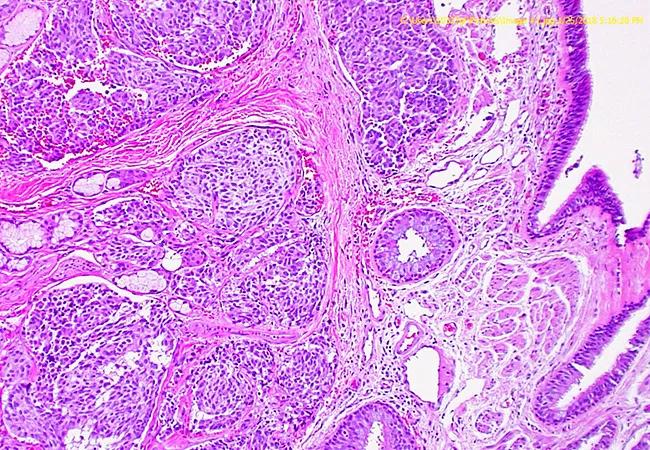Turn to 8th edition for better correlation

By Josephine Dermawan, MD, PhD, and Carol Farver, MD
Advertisement
Cleveland Clinic is a non-profit academic medical center. Advertising on our site helps support our mission. We do not endorse non-Cleveland Clinic products or services. Policy
Pulmonary carcinoid tumors are the uncommon, clinically indolent relative of non-small cell lung cancer (NSCLC). Because current lung cancer staging guidelines are largely based on data from NSCLC, which is vastly more common, using American Joint Committee on Cancer (AJCC) TNM staging to predict long-term recurrence and survival for carcinoid tumors is unclear at best and controversial for most. Our research team sought to offer some clarity to this controversy through a single-institution study that correlates pathologic stage from both the 7th and 8th editions of the Staging Manual with clinical outcomes for carcinoid tumors. We presented our findings at the 2018 Annual Meeting of the United States and Canadian Academy of Pathology.
We identified 217 surgical lung resection cases from 1995-2015 with a diagnosis of primary lung carcinoid tumors and staged them according to both the 7th and 8th editions of the AJCC TNM Classification of Lung Tumors. We also collected clinical data, including demographics, smoking history, recurrence and survival. Patients with concurrent or preexisting malignancies and/or positive resection margins were excluded.
Of the 181 cases available for clinical follow-up, 16 experienced recurrence (9 percent) and five (3 percent) died with metastatic carcinoid tumor. Atypical carcinoid tumors were more significantly likely to recur (log-rank P < 0.0001). Because the 8th edition of TNM places more emphasis on tumor size, staging based on this edition was more likely than the 7th edition to predict outcomes in our study (P < 0.0001 vs P = 0.0026). Procedure type and smoking history did not correlate with outcomes.
Advertisement
Based on our study, we recommend the criteria in the 8th edition of AJCC’s TNM Classification of Lung Tumors for stating primary lung carcinoid tumors. Classifying carcinoid tumors based on typical versus atypical histology types, which is based on mitotic figure counts on histology, is still the best predictor of tumor recurrence. We are currently examining the applicability of the ki67 proliferative index as another tool for classifying this tumor and predicting tumor recurrence.
Advertisement
Advertisement

Combining advanced imaging with targeted therapy in prostate cancer and neuroendocrine tumors

Early results show strong clinical benefit rates

The shifting role of cell therapy and steroids in the relapsed/refractory setting

Radiation therapy helped shrink hand nodules and improve functionality

Standard of care is linked to better outcomes, but disease recurrence and other risk factors often drive alternative approaches

Phase 1 study demonstrates immune response in three quarters of patients with triple-negative breast cancer

Multidisciplinary teams bring pathological and clinical expertise

Genetic variants exist irrespective of family history or other contributing factors